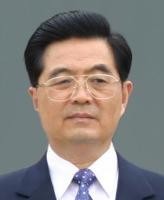China has taken an atypically strong stand in opposing efforts to force the Syrian government to end its brutal repression of anti-regime protesters. But China, unlike Russia, with which it has joined to block measures seeking to remove Syrian President Bashar al-Assad from office, is motivated primarily by principles rather than concrete strategic and economic interests in Syria. And China, unlike Russia, seems more open to changing its position.
For the past two decades, Chinese leaders have typically opposed foreign military interventions seeking regime change. The Chinese government has traditionally sought to keep United Nations resolutions precisely worded to tightly constrain how member governments apply them. Furthermore, China strongly supports traditional interpretations of national sovereignty that severely restrict the right of foreign powers or international organizations to intervene in a country’s internal affairs.
Chinese officials claim to have learned from last year’s Libya resolution that they cannot allow U.N. Security Council resolutions to include any wording that Western powers could conceivably use to justify armed intervention. As a result, in the case of Syria, Chinese officials have tried to ensure that proposed resolutions exclude any possible interpretation suggesting that the council had authorized military action.

